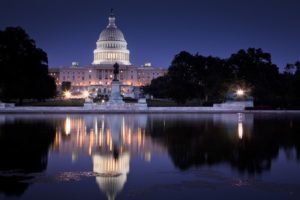Interviewer: Aly Kamadia is the Editor-In-Chief of iDose
Interviewee: Dr. André Gagné is Associate Professor in the Department of Theological Studies at Concordia University (Canada)
If you’re accustomed to watching mainstream broadcast (national) news in the United States or Canada, you very well may be ignorant of the not-so-insignificant number of your fellow citizens who hold strong religious beliefs.
Sometimes those beliefs clash with science. Thus in parts of the United States, as an example, children grow up learning that the world is only a few thousand years old and that humans lived alongside dinosaurs.
But the negative impacts of certain religious beliefs hardly stop there. In the midst of the current global pandemic, COVID-19, some peoples’ religious belief aren’t merely clashing with science, but risk the prospect of unnecessary suffering.
Today iDose is happy to feature an interview with a theologian who is an expert on such topics, and who has also had fascinating personal experiences.
Aly Kamadia (AK): Thank you for the opportunity to interview you.
André Gagné (AG): Thank you very much for your kind invitation!
AK: A few religious scholars at the University of Southern California believe that Pentecostalism “is the fastest growing religious movement in the world” – to use your words. Can you very briefly describe what sort of religious movement it is?
AG: Pentecostalism is a Christian renewalist movement which emphasizes the “gifts of the Spirit”. The “Pentecostal experience,” is characterized by its emotional expressiveness, spontaneity in worship, speaking or praying in “unknown tongues”, prophecy, healing, etc. Pentecostals often describe themselves as “spirit-filled” Christians. Without getting into the history, it’s nevertheless important to note that in the recent past, the “Pentecostal experience” spread significantly to traditional churches during the 1960’s “Charismatic Renewal”, and to “Third Wave” evangelicals or “neo charismatics” in the 1980’s.
AK: Do you believe that Pentecostalism is indeed the fastest growing religious movement in North America, or perhaps even in the world? Is this position contested, and if so, are there some points of agreement vis-a-vis its rate of growth?
AG: There is agreement that Pentecostalism and its Charismatic (Renewal and “Third Wave”) offshoot is currently the fastest growing religious movement in the world. According to the Center for the Study on Global Christianity, Pentecostals/Charismatics today have approximately 645 million adherents, which is one-quarter of the 2.4 billion Christians in the world! It is estimated that between 2010 and 2020 approximately 55,000 people joined Pentecostals/Charismatics every day, and the movement grew at the rate of approximately 20 million a year. It is projected that in 2050 there will be 1 billion Pentecostals/Charismatics in the world. In 2010, the U.S. had approximately 65 million renewalists.
AK: When it comes to the United States and Canada, how much of each of their population, whether a part of Pentecostalism or not, believe that Christ’s triumph on earth is imminent? Is there a rough estimate of people who wholeheartedly believe that Christ will return in their lifetimes, or soon thereafter?
AG: There was an interesting LifeWay Research survey conducted in early April which asked 1000 American pastors from evangelical and historic Black denominations about their views regarding the return of Christ, biblical prophecy and the end times. The survey, unfortunately, does not break down the groups into more specific traditions (Baptists, Lutherans, Pentecostals, etc.), but it does give a sense of some of the beliefs one can expect from these groups. The survey reports that “97% agree that Christ will literally and personally return to earth again” and that “56% expect Jesus to return in their lifetime.” Pastors teach their congregations about “the end times” and the survey reports that “89% say that communicating the urgency of Christ’s return is important.” 57% of the pastors surveyed say “that their current views on the end times match a majority of their congregation’s views.” So, this is clearly not a “fringe idea”.
AK: As you’ve pointed out, numerous religious leaders in the United States have effectively told their followers to ignore public health guidelines when it comes to COVID-19. Thus, for example, a number of religious leaders instruct devout followers that they needn’t listen to fundamental public guidelines, such as social distancing. Given that COVID-19 still maintains a dangerous grip on both the US and Canada, are a significant number of influential religious leaders sticking to that position? Is there any debate among such religious leaders?
AG: There have been various responses to COVID-19 confinement rules and recommendations from evangelical leaders. In Canada, there hasn’t been any major resistance to COVID-19 confinement rules. In the U.S., however, most of the resistance came from Neo-charismatic and Pentecostal leaders. There are several reasons behind their actions.
First, there is the participatory nature of Neo-charismatic and Pentecostal worship services; it’s all about the emotional and spiritual experience of the attendees during expressive praise, prayer and worship. Holding meetings in the confinement of one’s home, in front of a screen is certainly not as energizing as the in-person congregational Sunday service.
The second reason behind some of the responses we’ve heard from many of these leaders and their congregants resides in the way they read the Bible. For them, the Bible is much more than an ancient religious text; it speaks directly to their needs for today. They transpose their own personal stories and life experiences into the stories of the Bible; these become their interpretive framework. It’s essentially a pre-critical, pietistic and subjectivizing hermeneutic. So, when someone says that they have no fear in attending church meetings because they are “covered in the blood of Jesus”, this means that no plague can harm him or her.
In this case, the person aligns his or her own life experience to that of the ancient biblical Israelites described in the book of Exodus. In chapter 12, one reads the story of the last plague of Egypt, where God brings about death to all first-born Egyptians for their refusal to free the Israelites from slavery. But the story says that God also promises to protect the Israelites if they take the blood of a sacrificed lamb and sprinkle it on their doorposts. As the destroyer descends on the land, he will “pass-over” the houses with blood on their “doorposts.” Neo-Charismatic leaders transpose and read their own COVID-19 outbreak experience into the Exodus story: as the “blood of the lamb” protected the Israelites from the destroyer, so will the “blood of Christ” be their protection from the virus.
AK: Some people take a very hostile view to all religions. My own view is that regardless of what one makes about the rationality of religious practice and belief, neither are going away anytime soon. Being aware of how strong religious beliefs can be, do you think that a rational dialogue is possible with the more devout followers – particularly during a moment when co-operation is directly in the general public’s interest? What advice can you give policy-makers, leaders and the general public when engaging with groups whose religious beliefs may clash with important COVID-19 guidelines (e.g. social distancing, personal hygiene)?
AG: I really think that policy makers and leaders, as well as people in general should learn more about the beliefs and practices of these groups. We have to be very precise in how we address specific groups and their rhetoric. Broad-brushing or lumping all religious groups together is not helpful and will exacerbate tensions. More education and public scholarship is needed on the origins, beliefs, practices and political inclinations of groups like Neo-Charismatics, Pentecostals and evangelicals in general.
The tendency is to discard and label these ultra conservative leaders and their congregants as irrational and/or crazy. I personally think infantilization is not the best route to incite change. The result leads to more radicalized and entrenched positions. Since they already adhere to a conspiratorial mindset, a “we” versus “them” worldview, minimizing their grievances – be they real or perceived – will prevent any possible rapprochement and nourishes “self-fulfilling prophecy.”
American society is already quite polarized; the question is whether we contribute to the polarization or seek ways to engage in dialogue when possible. Now this does not mean that we should give an equal voice or platform to ideas that are hurtful to society and democracy. But we should endeavour to comprehend the other perspective – even if we profoundly disagree – so that we can avoid mischaracterizing what they are saying. People can change when they experience a cognitive opening, when their expectations or their worldview fails them.
Dr. André Gagné is Associate Professor in the Department of Theological Studies at Concordia University (Canada)
Aly Kamadia is the Editor-In-Chief of iDose
© ALL RIGHTS RESERVED
Note: The views expressed in this interview do not reflect the position of Intellectual Dose, or iDose (its online publication). All Rights Reserved unless noted otherwise.



